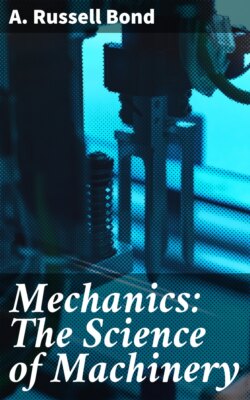Читать книгу Mechanics: The Science of Machinery - A. Russell Bond - Страница 21
На сайте Литреса книга снята с продажи.
CHAPTER IV
ОглавлениеTable of Contents
COUNTING SECONDS
YOU CAN measure civilization by its timepieces. The higher the civilization of a community the more it appreciates the value of time and the more minutely does it measure the passage of time. The savage divides his day into but two periods: the period of light and that of darkness; the early Romans divided their day into eight watches, four watches of daylight and four of night, but the higher and more complex civilization became, the smaller became the subdivisions of time. People began to feel the need of carrying the time with them, and about 1500 A. D. watches came into use, but it was not until 1665 that watches began to be equipped with minute hands, and it was almost exactly a century later that they were equipped with a second hand. To-day time means so much to us that we will fight our way into a subway express, instead of riding more comfortably in a local train, merely for the sake of saving five minutes. The tiny second hands of our watches divide the day into eighty-six thousand four hundred parts, and in some operations we measure time intervals down to the thousandth part of a second. Only among the most highly civilized nations are timepieces carried by the common people.
It used to be that time was made for slaves, but now time has made slaves of us. Shift the hands of the clock and the whole nation is forced to change its habits.
Time-measuring mechanism is given early prominence in this book because clocks were among the earliest machines invented, and they furnish an example of the wonderful ingenuity of inventors before the dawn of the modern era of machinery. Naturally this chapter must be largely historical.
The first thought of measuring time came from the ancient astronomers and astrologers, who, in watching the motions of heavenly bodies, the sun by day and the moon by day and night, found it necessary to keep a record of these motions and sought about for some mechanical means of doing so. The studies of the old astrologers were closely associated with religion, and as a consequence the most advanced intellects were centered upon astronomical matters and incidentally upon horology. Fortunately the design and construction of mechanisms for measuring time were not considered beneath the dignity of the scientists of those early days. Mathematicians felt free to record their investigations in this branch of mechanics, and as a consequence of the early cooperation of science and mechanics in this field much real progress was made, and the development of timepieces was more rapid than that of any other machine.
